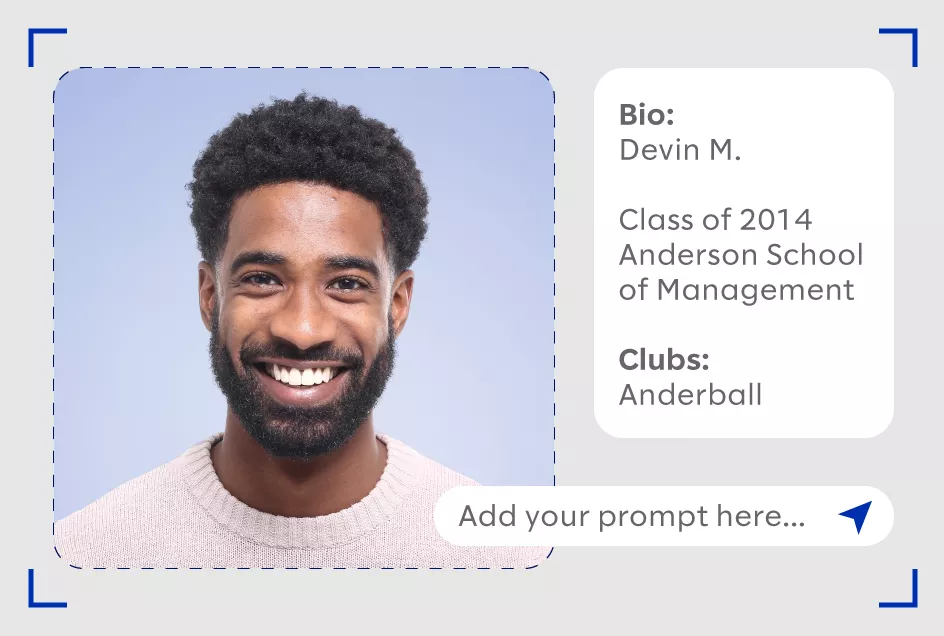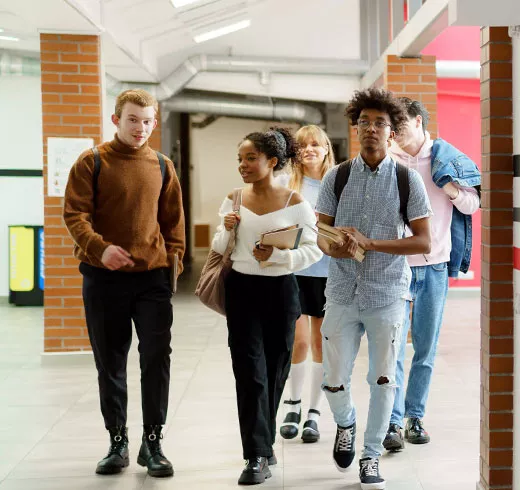UCLA Anderson School of Management
GenAI personalization for alumni fundraising

At a glance
UCLA’s Anderson School of Management partnered with Slalom to demonstrate the power of generative AI (GenAI) to supercharge its existing data and marketing platform, personalize alumni messaging, and boost giving.
Impact
Email personalization boosted click-through rate by 66% and total donations by 132%, highlighting GenAI’s potential to drive data-driven wins in higher education.
Key Services
Industry
Education
Key Technologies / Platforms
- Amazon Web Services (AWS)
- Amazon Bedrock
- Anthropic Claude 3 Sonnet
- Salesforce Marketing Cloud
Innovating with data + AI in higher education
As the AI revolution rapidly unfolds, now is the time for bold action. As the top-ranked public research institution in the country, UCLA is exploring how AI can have a positive impact on its mission.
At UCLA’s business school, the Anderson School of Management, CIO Howard Miller was looking for the right opportunity to innovate with generative AI in the higher education space. The Slalom Education team, led by director Dr. Jennie Wong, recognized the potential to bring the power of GenAI together with UCLA Anderson’s existing data and marketing platform to support alumni fundraising.
Our pitch?
“Imagine if you could write each donor a truly personalized email that showed your understanding of their relationship with your institution, background, giving history, interests, and core values. How might that optimize your ability to convert your alumni into engaged donors? We can leverage the latest advances in generative AI to help you do just that.”
Miller, a trailblazer within the UCLA ecosystem, agreed that fundraising was a strategic use case for the school and a good way to put AI to a real-world test.
A team effort focused on data security
What happened next required the collaboration of multiple teams—including Slalom, UCLA Anderson, UCLA External Affairs, and AWS as the selected generative AI provider—each inspired by the opportunity to support the Anderson Advancement team in their giving campaign.
The focus of this initial effort was to test generative AI personalized emails (versus control emails) on a randomized subset of Anderson alumni to measure the differences in engagement and giving outcomes. The implementation brought together Slalom’s advisory expertise in fundraising best practices and generative AI engineering capabilities on Amazon Bedrock, all optimized by Salesforce Marketing Cloud.
Given the usage of alumni data, data security was of the utmost importance. To ensure privacy, all of Slalom’s work took place within UCLA External Affairs’ existing AWS instance and the institution’s Salesforce Marketing Cloud instance. At no point did alumni data leave the client’s secure environment. Additionally, all data processed by Amazon Bedrock is encrypted and is never used to train Amazon or any third-party models (e.g., LLMs).

Customizing targeted messages that resonate
Within Amazon Bedrock, Anthropic’s state-of-the-art model Claude 3 Sonnet was selected as the best-fit LLM and iteratively prompted to produce personalized messaging based on available alumni data. These personalized text blocks were then incorporated into Salesforce Marketing Cloud emails, which were further optimized via evidence-based persuasion and fundraising best practices.
By leveraging targeted information like class year, previous donations, specific degree type received, and fellowship history, the generative AI emails received more engagement and achieved a higher conversion rate to donation among the 3,000 alumni who were a part of the 2024 reunion campaign.
“The neat thing that AI allowed us to do was to really personalize the message,” explains Miller. “By knowing something about who we’re sending the message to, it had a better chance to resonate.”
Data + AI delivered, but this is just the beginning
As Slalom’s global leader for the education industry, Wong sees great promise in the results of this small pilot effort. “The numbers all point in the same direction toward effectiveness and create a strong business case for a larger implementation.”
Encouraged by numbers like these, UCLA is considering a larger test of this approach. For Miller, the project showcases the power of multi-partner collaboration and modern technology to solve business problems. He appreciates Slalom’s support and is discussing future collaboration on additional AI use cases. “Everybody I’ve encountered at Slalom has been friendly, technologically innovative, and fun to work with. We did really good development work together, and I think it has a lot of potential.”
Wong agrees and sees a universe of potential in AI and machine learning for higher education. She explains, “This successful test with UCLA Anderson demonstrates the potential of GenAI to move the needle on the metrics that matter in university advancement and has relevance to broader engagement needs within higher education. Imagine a world where every donor feels intimately connected to the institution’s mission, and personalized interactions spark a flame of philanthropy across new audiences.”




